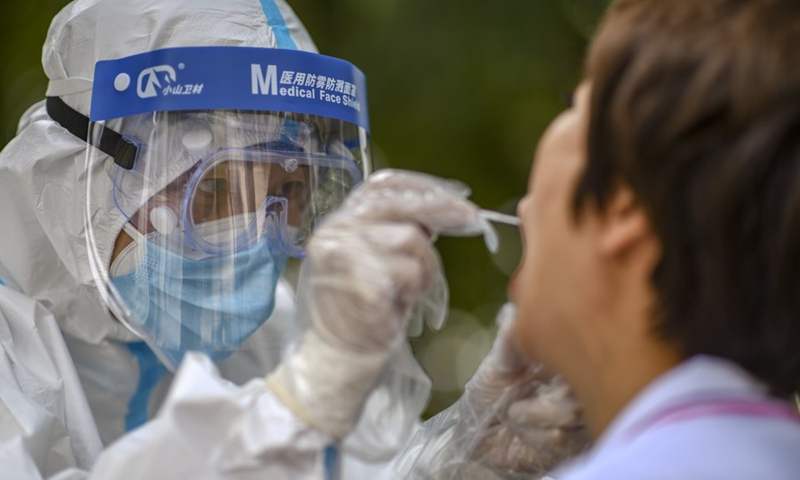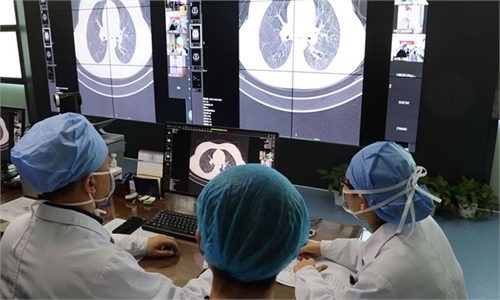Kashi in Xinjiang to launch massive COVID-19 testing after one asymptomatic case reported

File photo: Medical worker Yan Huanjiao collects a swab sample from a resident at Tianshan District in Urumqi, northwest China's Xinjiang Uygur Autonomous Region, July 20, 2020.(Xinhua/Zhao Ge)
Kashi in Northwest China's Xinjiang Uygur Autonomous Region is expected to launch a massive COVID-19 testing program to curb the spread of the virus after one asymptomatic case was reported, leading officials in the autonomous region said in a video conference Saturday.
Xinjiang must make every effort to control regional cases and widespread nucleic acid testing in Kashi will be carried out, Chen Quanguo, the Party secretary of the region and head of Xinjiang's anti-epidemic group, said at the conference.
A villager in Zhanmin town of Shufu county tested positive during regular nucleic acid testing. Following an epidemiological investigation, people who have been in close contact with the patient have all been put under medical observation.
Kashi airport has resumed operations and flights can enter and depart the region as normal, but all departing passengers must show a negative nucleic acid test report before they can board a flight. Bus operations in the city of Kashi have been suspended and widespread testing is underway, media reported.
Every second counts, and every effort must be made to carry out epidemiological investigations and cut off transmission channels to ensure that the virus does not spread, Chen said at the conference.
As part of normalized anti-epidemic prevention and control, Chen said Xinjiang will continue to insist on finding fever patients and implementing routine monitoring and early warning mechanisms in key locations. The tight lines of defense in port sanitation and quarantine, cold chain food supervision and disinfection in logistical procedures will be strictly maintained.
Chen also said Xinjiang will stick to the general goal of social stability and long-term security, and maintain normal economic and social order without relaxing the normalization of anti-epidemic prevention and control.
Global Times


